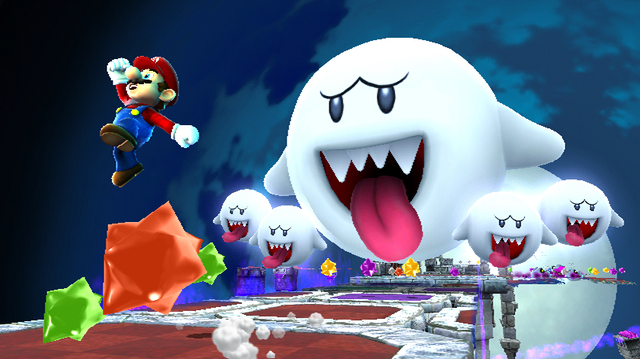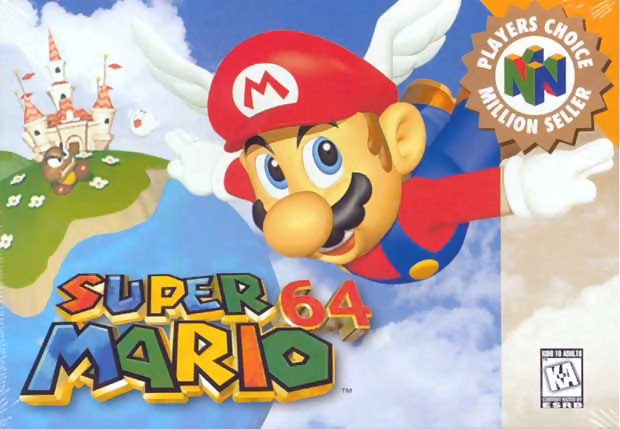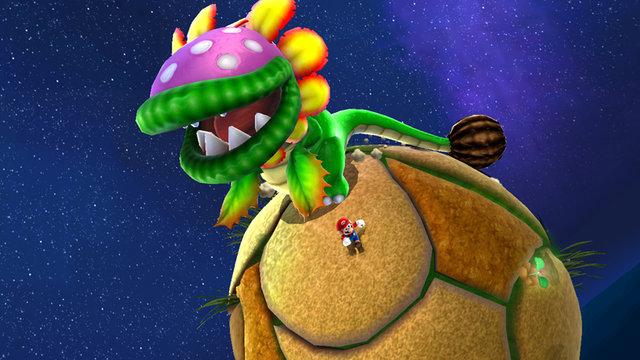This post has not been edited by the GamesBeat staff. Opinions by GamesBeat community writers do not necessarily reflect those of the staff.
 The Super Mario Galaxy series has likely created many new Mario fans
The Super Mario Galaxy series has likely created many new Mario fans
and kept existing Mario fans very happy, just like previous Mario titles.
Editor's note: Like many gamers, Mario is among my favorite franchises of all time (and this comes from someone who generally doesn't care for long-running game series). My favorite aspect of Mario games is fun: I always have a blast while playing one of the portly plumber's games. Nicholas examines what makes the series so enduring. -Jason
For many, the terms "Goomba," "Koopa," "Bullet Bill," and "warp pipes" are synonymous with platform-style games. And these words aren't associated with just any kind of platforming — they go with elite platforming, some of the best that the video game industry has to offer. These terms originate from the Mario universe, a universe where a princess is continually kidnapped by a supernaturally powerful beast named Bowser. Whenever he takes her, millions of Mario fans emerge to answer the call to save her despite having done so countless times before.
And they do so happily.
But why? What is it about this particular universe that's captivated gamers for 25 years? Mario isn't the only platforming franchise in town, and his isn't the only one with imagination — Insomniac's Ratchet & Clank is packed with creative designs. If gamers want great platforming challenges, they can turn to the Prince of Persia franchise. But no matter how many challengers rise up in the platforming genre, Mario remains king.
Mario is a difficult opponent to defeat: The series is the best at what he does, as is the case for many Nintendo franchises. Mario, though, has several factors in his favor that make him such a platforming icon.
Nostalgia and accessibility
If you ask many gamers what was the first game they ever played, it's likely a Mario game. For many gamers to come, the answer will likely continue to be a Mario game. Nintendo consoles are fantastic kick-starters for young gamers because they have plenty of accessible, family-friendly content available. The odds of gamers playing a Mario title that's considered one of his best ever are high as well — whether it's Super Mario Galaxy, Super Mario 64, Super Mario World, or the original Super Mario Bros. When gamers start off playing a game that's spectacular, they remember that experience and continue to come back to it. The Mario franchise continues to reward its fans by being the one thing they remember it as: great.
Difficulty curve
Mario games are easy to learn and difficult to master. They're not overly simplistic games for children. The deeper gamers venture into Mario's worlds, the steeper the challenge they're likely to face. As gamers grow, they can always find a difficult, rewarding challenge awaiting them somewhere in a Mario game. Young gamers like Mario because it's a straightforward franchise, and older gamers like Mario because no matter how many skills they acquire, Mario waits to challenge them.

Super Mario 64 is one of the most celebrated Mario
titles. It features some of the most classic moments
and levels in Mario franchise history.
Consistently classic
Mario may have a wide array of sports games and other titles, but his classic franchise, Super Mario, is special. The highest number of Super Mario titles to ever grace a single Nintendo home system is three: the first three Super Mario Bros. games for the NES. Each Super Mario game is a game that's undoubtedly fun, rewarding, and classic — the same as just about every single Super Mario title before it. When gamers know that every new installment in a franchise is going to be a classic, they're going to show up to buy every new game from that series.
Familiarity
When a gamer purchases one Mario title and then another, they truly appreciate how much each Mario title is instantly familiar and yet different at the same time. Part of the reason that Goombas, Koopas, Bullet Bills, and warp pipes are synonymous with epic platforming is because they're always part of Mario. While every Mario is different than the one before it, certain elements never change. Every Mario title has pieces of previous Mario titles in it, big and small. Gamers enjoy familiarity; they like seeing Chocobos and Moogles in each Final Fantasy, they like their favorite characters to appear in each game in a fighting series — and they definitely like how Mario brings back their favorite elements of classic Mario games.
 Imagination
Imagination
In what kind of world does an Italian plumber battle a giant turtle? In what kind of world do ghosts stalk you until you turn around and look at them, forcing them to stop in their tracks to cover their faces? The answer is Mario's world. One of the greatest strengths of Mario is that no conventional wisdom necessarily powers his world — it's all imagination, powered by the mind of Shigeru Miyamoto and the minds of his creative team at Nintendo. Mario's universe has talking mushrooms, a dinosaur that Mario rides and uses to devour his enemies, and stones with angry faces that hit the ground and threaten Mario. None of it needs to make sense. The whole Mario universe just works.
Fun
Finally, we get to fun. The Mario franchise has one of the greatest enduring "fun factors" in the history of video games. Mario's adventures epitomize fun through a combination of classic platforming mechanics and all of the factors mentioned in this article. Mario titles provide not just fun but timeless fun — the kind of fun that has modern gamers downloading titles like the original Super Mario Bros. for the NES in droves of the Wii's Virtual Console. Mario, above all, provides an experience that is so fun and so memorable — on such a consistent basis — that gamers show up for every title. Mario lives on because nearly every game is classic and rewarding like no other. When a video-game franchise manages to accomplish the release of classic installments like Mario does, the franchise is destined to stay.
